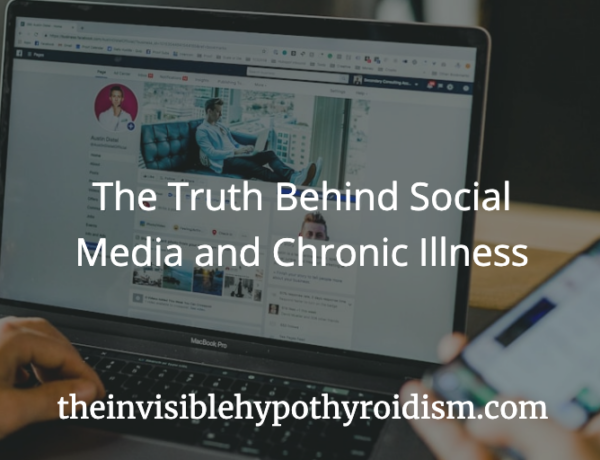If there’s one thing I’ve learned whilst having hypothyroidism and speaking to thousands of others with it too, is that there is no ‘one size fits all’ approach to treating and managing it.
Many thyroid patients are on medication for their hypothyroidism and still struggle with symptoms daily. Some do do fine on standard T4 medication such as Levothyroxine and Synthroid, whilst others don’t feel any better, or only marginally better.
Claims that all we need to do is take a T4 pill and we’ll magically feel all better just isn’t the case for many of us. If it were, would we be taking to online spaces to seek support and share our experiences about it? Desperate for answers on why we don’t feel better like our doctor promised?
It seems crazy to me that so many medical professionals believe that one type of thyroid medication will work for everyone with hypothyroidism. With other health conditions, there are multiple types of treatment that can be tried to see what works best for the individual. Yet, with hypothyroidism, many of us are denied a trial of another type of medication, such as synthetic T3 or NDT medications, even if the T4 medications aren’t helping and our quality of life is suffering.
In which case, we then have mounting symptoms and prescriptions for ailments that could be resolved on another type of thyroid medication that works better for us.
It seems that when T4-only medications aren’t working, but a medication containing T3 does help, it’s often due to a conversion problem (of storage hormone T4 to active hormone T3).
The BBC show ‘Trust Me I’m a Doctor’ discussed this issue, saying:
“Sometimes when patients are diagnosed with hypothyroidism and prescribed T4, this doesn’t make them feel any better. It may be that these patients have trouble converting T4 into the active version of the hormone, T3. This process is dependent on enzymes in the body that need certain nutrients to function. It could be that these enzymes are not working properly, or the body isn’t producing enough of them or it could be that patients are lacking the nutrients needed for these processes, such as selenium. An alternative treatment option is to take T3 – the active hormone.”
However, as well as thyroid medication, there are often other parts of the recovery puzzle too. Something I call the ‘thyroid jigsaw puzzle‘.
Adrenal function, exercising correctly for a thyroid condition, low nutrient levels, low stomach acid, gut health, unaddressed thyroid antibodies, food sensitivities, stress levels and management, blood sugar management, infections and more also form part of the bigger picture. Many of us need to address these other areas too and have a multi-pronged approach and really make progress in our health.
Read about everything I had to address to get my health back here.
Each healing and recovery ‘journey’ from hypothyroidism can be unique. Just like the unique person with the thyroid condition. Therefore, treatment should be unique to them too and assuming there is a ‘one size fits all approach’ to treating us all and reinstating a good quality of life, is simply falling short for so many people.
How do you feel about this topic? Add your thoughts in the comments.

The book Be Your Own Thyroid Advocate: When You’re Sick and Tired of Being Sick and Tired, which builds on this article in detail and equips you with what you need in order to reclaim your life from hypothyroid symptoms.





